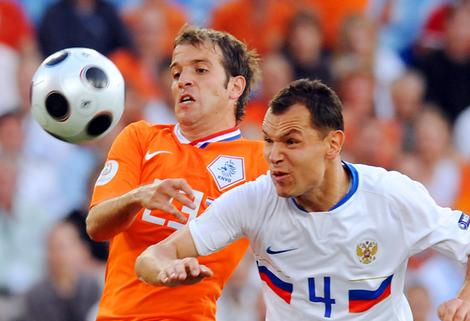Benjamin Franklin wrote in 1789 that nothing can be certain in this world except death and taxes. One could now propose another certainty. One day, a footballer will be found positive for a performance-enhancing drug in an important match and FIFA will at last have to confront the inadequacy of its disciplinary programme for doping.
So far, both the world governing body and UEFA have been desperately fortunate. Leading players, who have undergone adverse findings, have been suspended for only a few months with FIFA saying at the time that it did not have the regulations to intervene.
The leniency of bans in the past has made football a laughing-stock in the international sporting community.
In 2001, there was a spate of positive drugs tests for nandrolone, the anabolic steroid, following nine players having adverse findings for drugs in the Italian League.
One of these was Edgar Davids, the Juventus and Dutch international mid-field player, who was suspended for just five months and fined £30,000 following a league match against Udinese – and much of the ban ran over the summer, which fortunately for him and his club was when the Italian League was not being held. Frank De Boer, the Holland defender, who underwent a positive doping test also for nandrolone in Barcelona’s UEFA Cup match against Celta Vigo on March 15, was free to play again on August 31 of that year.
These ludicrously short suspensions contrasted with those of two years for the same substance in other sports, such athletics. FIFA explained that it could not intervene because it was obliged to follow the decision of a constituent member.
The truth was that FIFA had not anticipated such cases and was found wanting and powerless when they occurred, a shameful situation given the fact that it is, by some way, the most powerful international federation as well as controlling the world’s most popular sport. Fast forward eight years and we have recently had another case in football, where the game has been exposed to ridicule.
 Since 2001, FIFA has signed up to the code of the World Anti-Doping Agency (WADA), albeit reluctantly. Yet, it did not intervene in the case of two CSKA Moscow defenders, Alexei Berezutsky and Sergei Ignashevich (pictured in white), who both were found positive for a stimulant after their club’s 3-3 draw with Manchester United in the European Champions League on November 3.
Since 2001, FIFA has signed up to the code of the World Anti-Doping Agency (WADA), albeit reluctantly. Yet, it did not intervene in the case of two CSKA Moscow defenders, Alexei Berezutsky and Sergei Ignashevich (pictured in white), who both were found positive for a stimulant after their club’s 3-3 draw with Manchester United in the European Champions League on November 3.
This was presumably because FIFA felt this was the responsibility of UEFA, the governing body for European football.
Two weeks after the match against United, the two Russian players took part in a 2-1 victory over Wolfsburg, the German champions, a performance that helped ensure that CSKA – as well as United – and not Wolfsburg went through to the knock-out stage of the tournament. They were found positive for “non-specified” stimulants on the WADA list and Wolfsburg were unhappy (something that is scarcely surprising) that CSKA were not docked the points for the match against the Germans.
Instead, just before Christmas, the players were both banned for one match and the club was fined €25,000 (£22,500). CSKA’s excuse was that both players were given a cold remedy, containing the stimulant, while fighting colds on international duty and the CSKA staff had failed to list the medication on the list given to UEFA officials before the game with United. It was, said CSKA, a “clerical error”.
Under UEFA rules, a club “may” be suspended from that competition or future competitions if more than one player from the same team commits a doping offence. Wolfsburg could well feel hard done by but with the disciplinary decision made at the same meeting as the draw for the knock-out stages, there is no chance of a successful appeal against UEFA’s decision, however justified it might be.
But what fascinates me is the future. When a blatant and serious doping offence is found to have been committed by a player in a match, say a European Champions’ League match in the knock-out stages, are we seriously being told that if only one player is involved, then the result will stand? Here is where UEFA and FIFA lay themselves to ridicule. If the opposing club to the one, whose player is found positive, loses the match – and millions of pounds, where is the fairness in that? There isn’t.
In many other team sports, such as athletics and swimming relays or rowing, the team fielding the guilty competitor is stripped of any medal they may have won, as has occurred to the United States sprint relay teams in which Marion Jones, who has admitted taking drugs, was a member at the 2000 Olympics.
In football, a winning team, whose player has been found positive for drugs, is guilty of cheating, just as if that player had handled the ball. The fact that the rest of the team did not know about the drugs is not relevant. The result is a fraud. And it is appalling that FIFA cannot see that. Such a scenario will one day come to haunt FIFA. It should act before it is too late.
John Goodbody covered the 2008 Olympics for The Sunday Times, his 11th successive Summer Games, and first reported international football in 1962.
